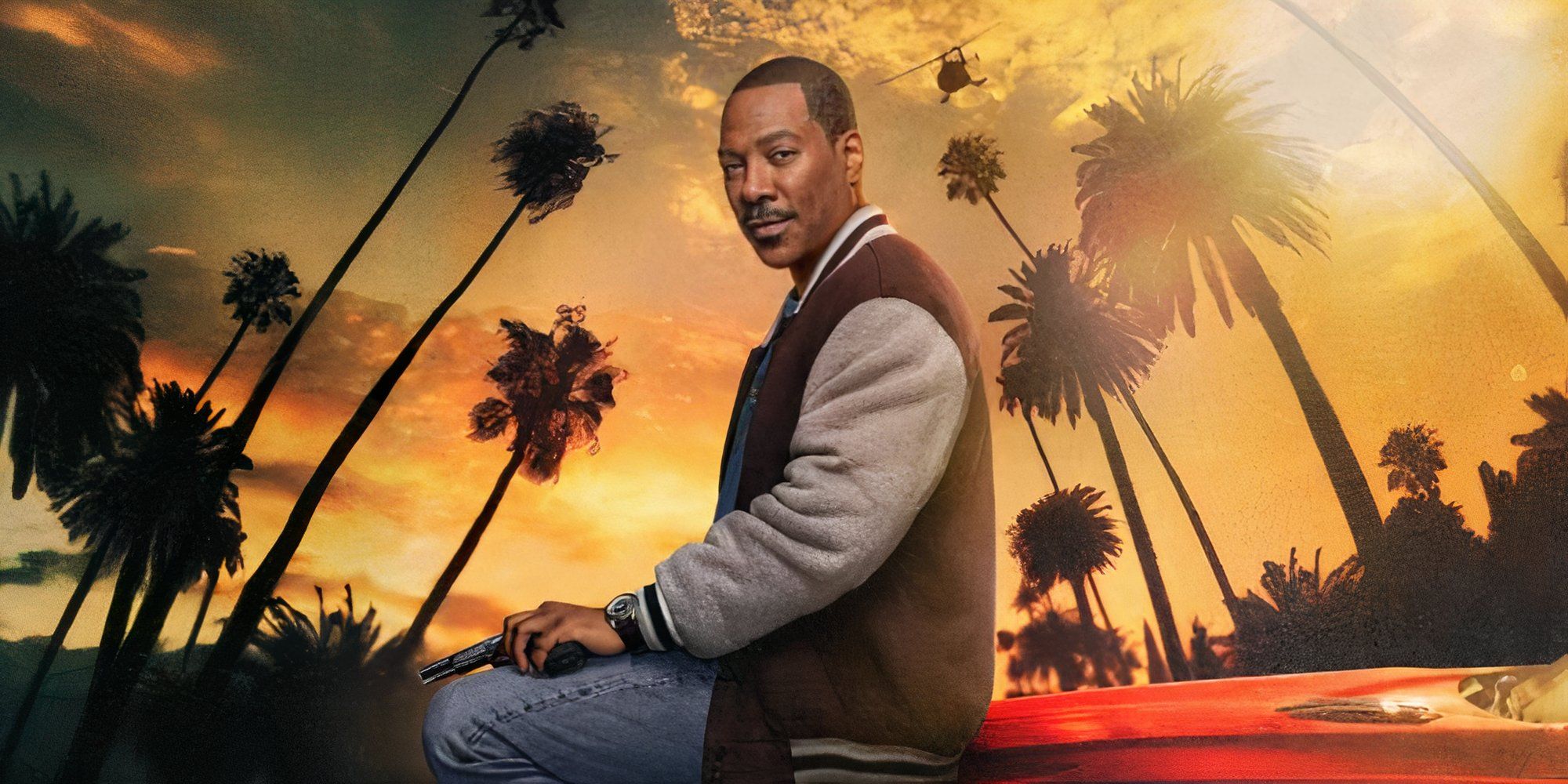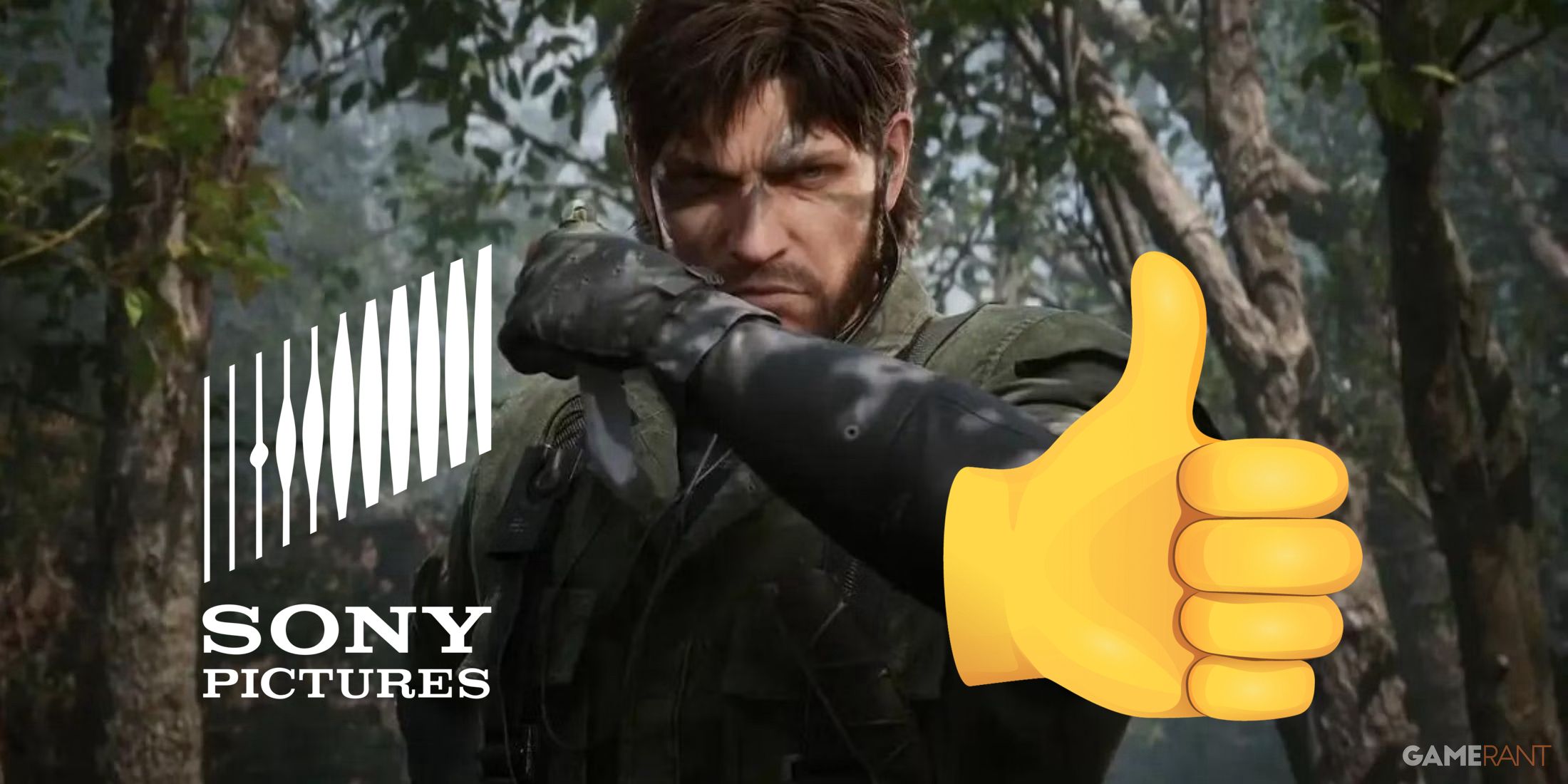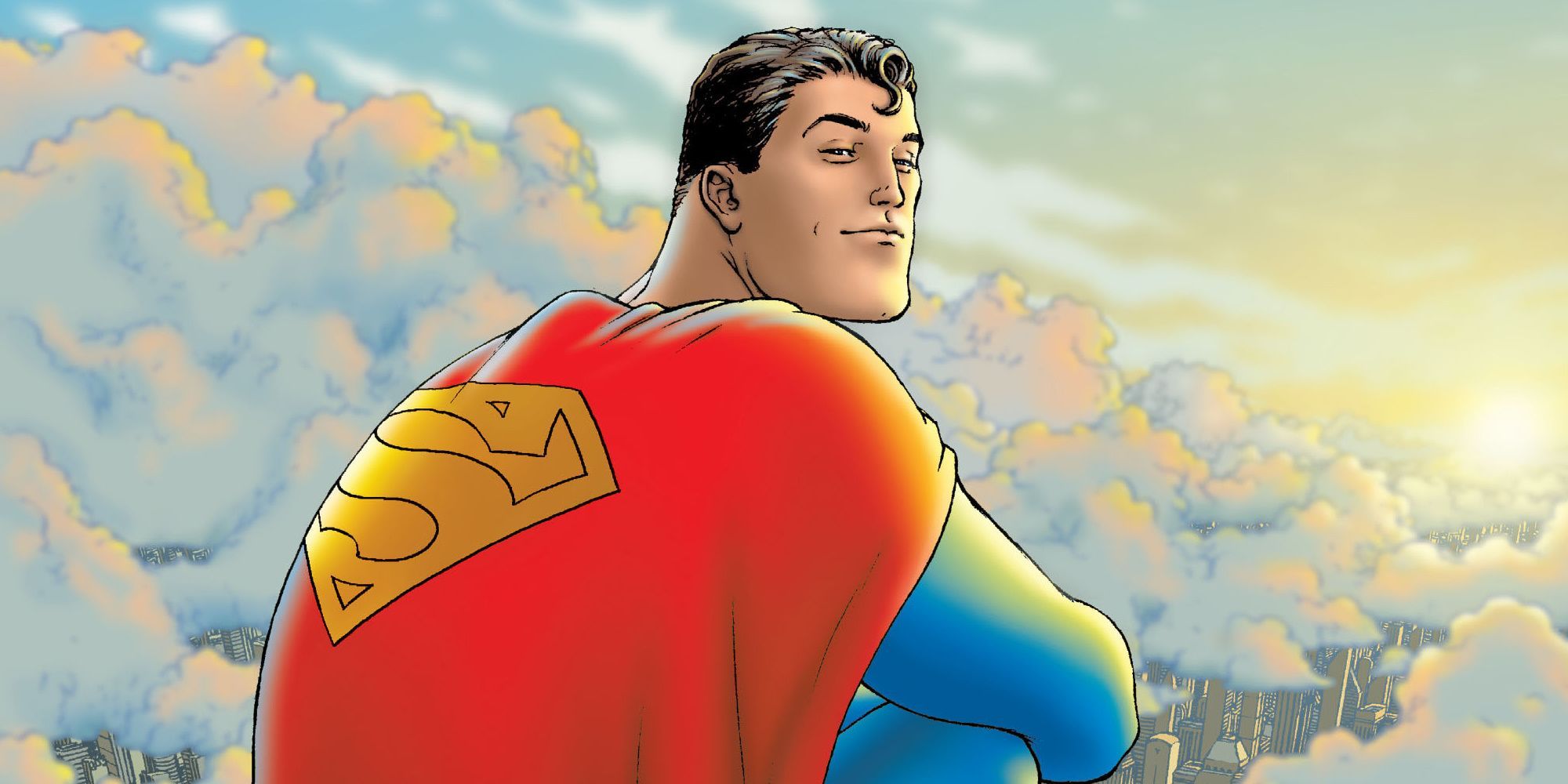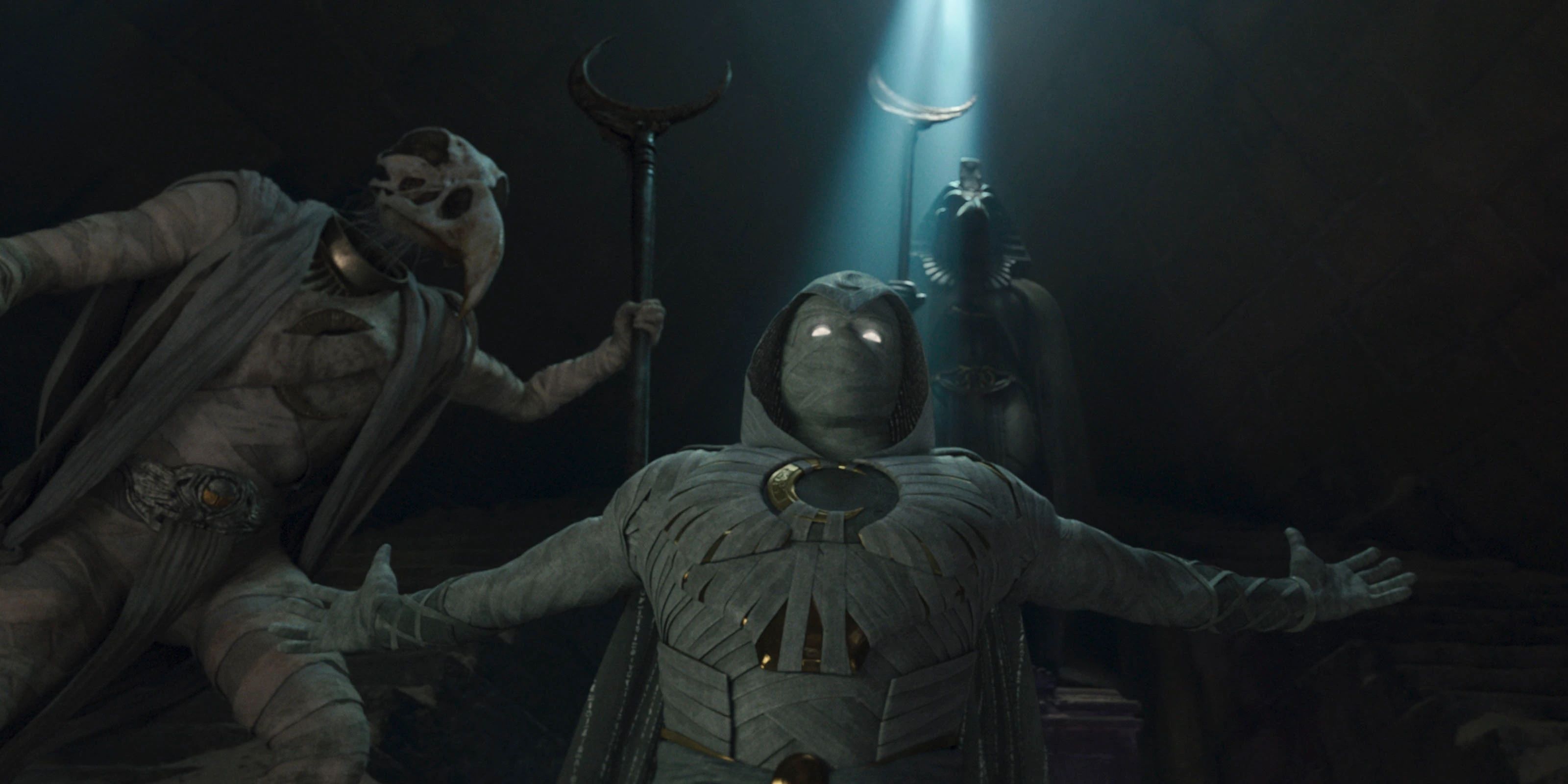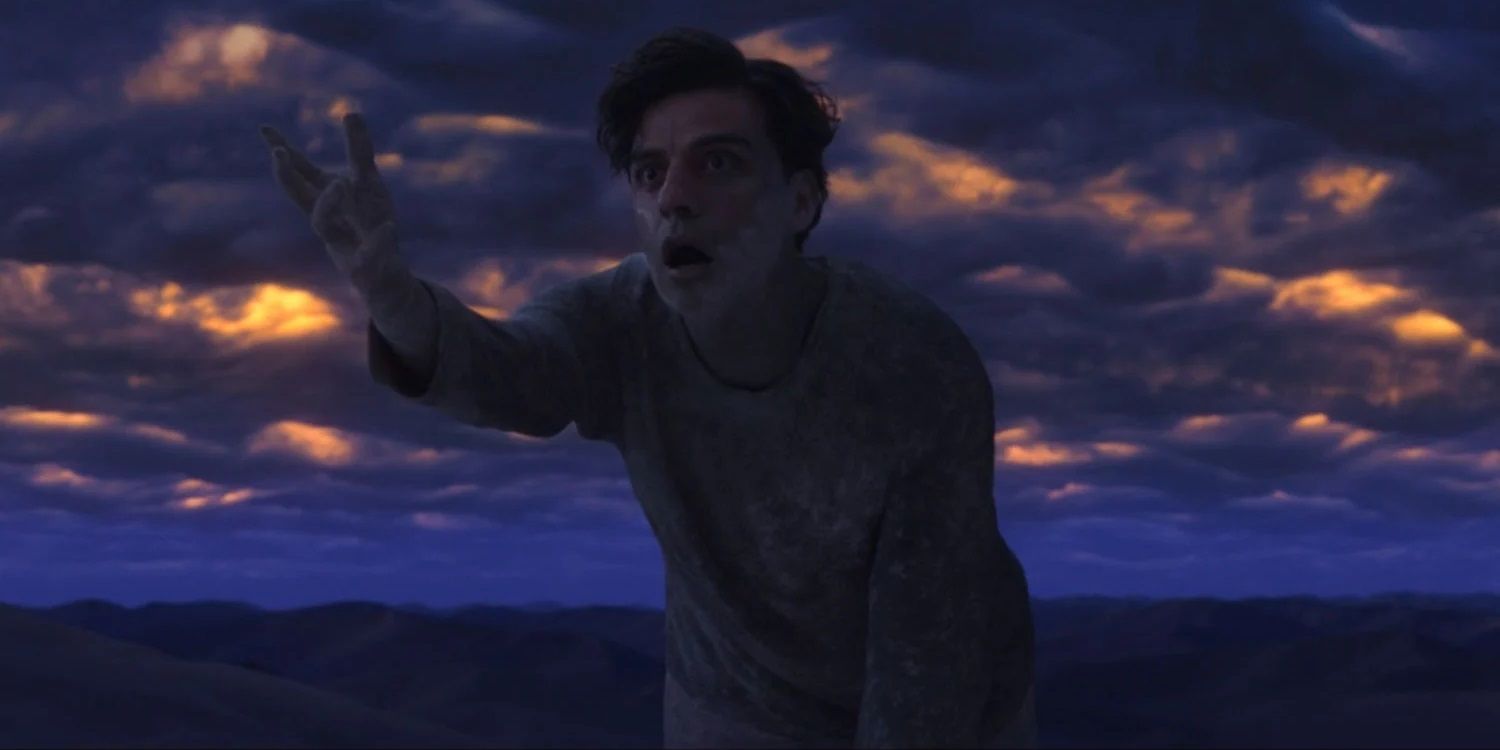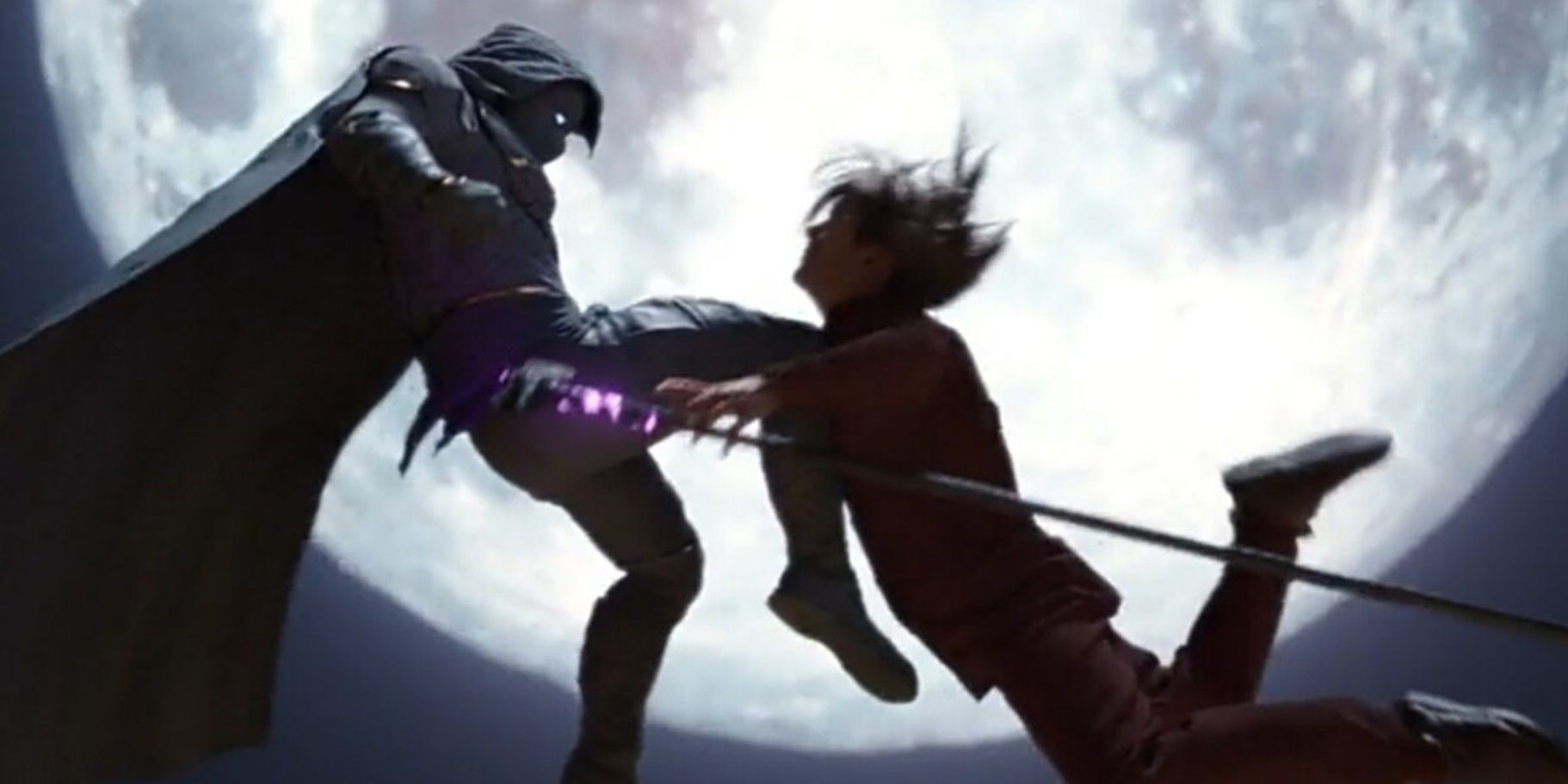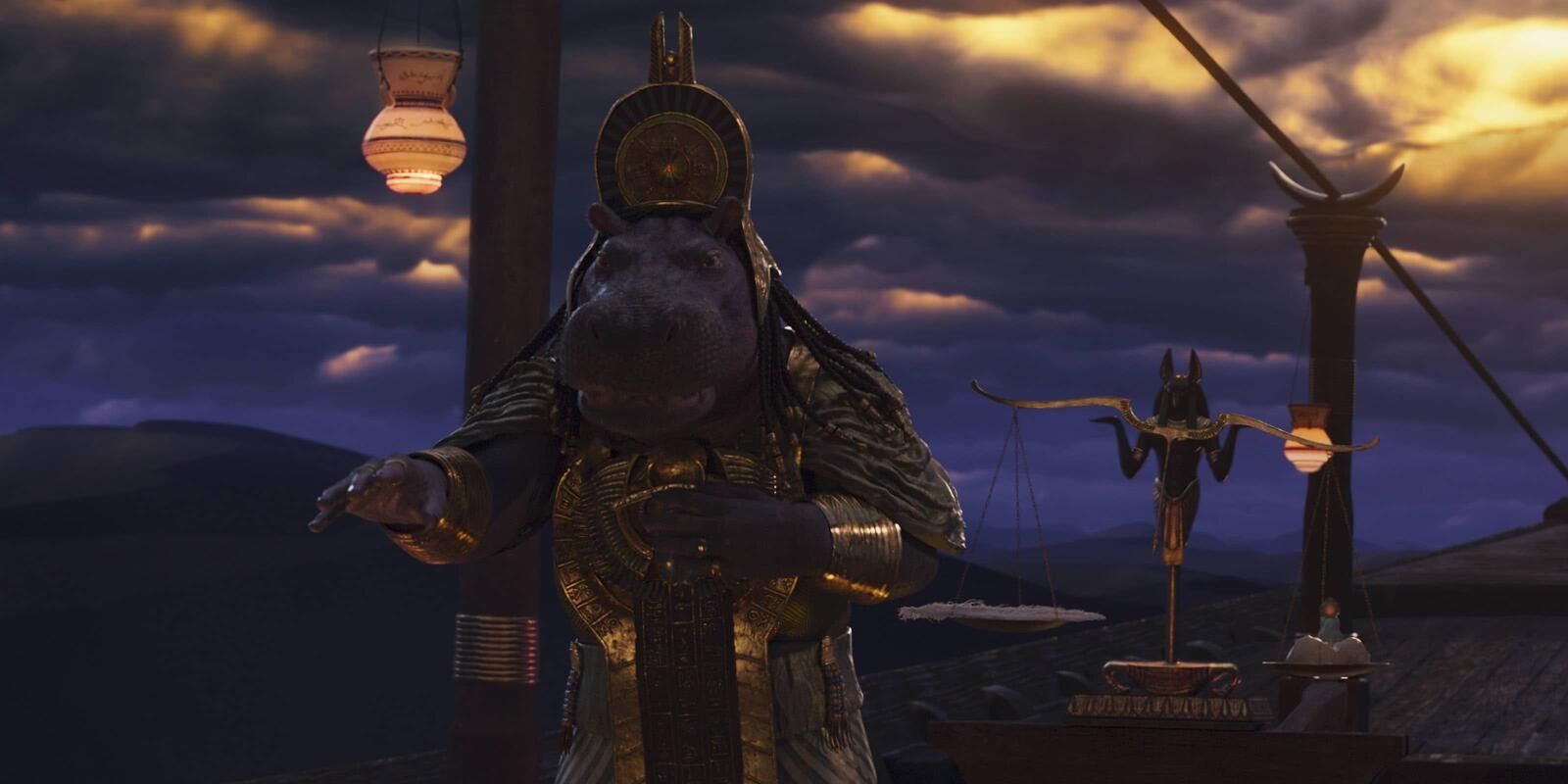Warning: This article contains spoilers for Moon Knight episode 6.
Over a year into its official foray into streaming on Disney+, the Marvel Cinematic Universe has aired its latest season finale. Six finales in, there’s a clear pattern of Marvel struggling to stick the landing with the last episodes of its streaming shows. The Falcon and the Winter Soldier culminates in a tacked-on battle with a totally unearned redemption for John Walker. The Loki finale abandons all the show’s established story arcs in favor of an hour of exposition setting up the franchise’s next big bad. The What If...? finale takes all the most interesting multiversal variants from previous episodes and crams them all into a messy, disjointed battle sequence (the episode could’ve been called “What If... This Show Ends the Same Way Every Marvel Show Ends, With a Big Battle?”).
By comparison, for the most part, “Gods and Monsters” – the final episode of Moon Knight, now streaming on Disney+ – pulls off a satisfying ending. Credited to Jeremy Slater, Danielle Iman, Peter Cameron, and Sabir Pirzada, the finale’s script brings the story to a close without resorting to any detours or disappointing anticlimaxes.
The last episode is less focused on the psychological thrills than its predecessors. It’s nowhere near as trippy or experimental or mind-bending as the last two asylum-set episodes. “Gods and Monsters” is more of a standard superhero actioner setting up an external conflict and then resolving it with violence. But, as far as standard superhero actioners go, it’s pretty darn thrilling.
The MCU’s Most Interesting Buddy Dynamic
Nearly every Phase Four streaming show has revolved around a central buddy dynamic: Sam and Bucky, Loki and Mobius, Clint and Kate. All those examples were typical “buddy cop” duos bickering in the midst of high-octane action sequences. Moon Knight has arguably the MCU’s most interesting – or, at the very least, most unique – buddy dynamic with Marc and Steven, two polar-opposite personalities sharing a body with a lunar deity. Over the course of the series, Steven has gone from being oblivious to Marc’s existence to fighting him for control of the same mind to loving him like a brother. It flips the Fight Club split-personality trope on its head by developing a heartwarming bond between the two personalities. In the episode’s sweetest moment, Marc tells Steven he’s “the only real superpower I ever had.”
Oscar Isaac had more opportunities to flourish as an actor in previous episodes than he does in the finale. Since the final episode is made up of mostly action, Isaac is largely confined to delivering snappy one-liners from behind a full-body suit of computer-generated bandages. Ethan Hawke still gets a chance to shine as the villainous Arthur Harrow. The actor is unsettlingly calm and sinister, both as the mystical cult leader plundering the pyramids and as the therapist in Marc’s imaginary mental institution.
In the finale, Harrow’s tangible threat finally presents itself. His magical cane lifts people’s souls out of their bodies, which he uses to give his new godly partner a hive mind. Harrow is one of the best-acted and best-characterized MCU villains yet. He wants what the hero has – to be the superpowered avatar of an ancient god – which is a classic villain role, and his “god complex” and delusions of grandeur explore a classic villain theme seen in countless Bond movies: the dangers of “playing God” (in this case, literally).
Plenty Of Moon Knight Action
Fans who decried the lack of Moon Knight action in previous episodes will be happy with the action-packed season finale. “Gods and Monsters” has all the Moon Knight action fans could hope for, and it’s shot beautifully. The initial slow-motion confrontation between Marc and Harrow on the side of a pyramid is silhouetted against a giant full moon in the night sky. There’s an awesome unbroken tracking shot of Mr. Knight eviscerating a series of goons in suave style. And on top of all the ass-whoopings handed out by Moon Knight, Layla gets her own set of superpowers and a godly suit to summon.
Like WandaVision, what began as a subversive, wholly original series exploring new themes and concepts within the familiar Marvel universe has ended with the same tired trope seen in not only every other MCU project, but almost every other comic book adaptation. The action in “Gods and Monsters” is a lot of fun, but it’s ultimately a pretty typical Marvel final battle.
The villain threatens a crowded city, his threat never seems likely to cause any real damage, and the editing cross-cuts between all the heroes doing their part to thwart him. Khonshu’s fight with Ammit offers unnecessary kaiju spectacle. Like the dragon duel in Shang-Chi, the big CG brawl between supernatural forces distracts from what the human characters are up to. There’s a classic all-is-lost moment followed by the inevitable victory (which happens off-screen in a callback to the pilot episode’s mysterious blood-soaked blackouts).
Moon Knight Concludes On Its Own Terms
Ultimately, “Gods and Monsters” succeeds by concluding the series on its own terms. It doesn’t rely on any outside Marvel knowledge like a lot of recent MCU finales. The effectiveness of the Loki finale required a prior familiarity with Kang the Conqueror. The effectiveness of the Hawkeye finale required a prior familiarity with the Kingpin. The Moon Knight finale rewards viewers who have been following the series instead of cluing in fans who have read the comics.
The episode is refreshingly focused on wrapping up the narrative at hand instead of feeling the need to connect it to the larger cinematic universe. It keeps the spotlight on its own characters and plot points as opposed to bringing in a ringer for some cheap fan service or shock value. The last episode of Moon Knight manages to bring its own story to a close while also setting up new stories for the future. Marc and Steven have found peace cohabitating in the same body and they’ve agreed to return to Steven’s mundane life. But Khonshu is still in the picture and now, there’s a third personality in the mix.
Jake Lockley is finally revealed in the post-credits scene after resolving the climactic battle in a blackout. Jake’s introduction sets up an even more thrilling second season (or a movie or a supporting role in an ensemble MCU team-up or whatever Kevin Feige has in store for this fascinating new character). Jake is to Marc what Marc was to Steven: the more ruthless and sadistic version of himself. Hopefully, fans haven’t seen the last of Moon Knight in the MCU. This has been one of the franchise’s most exciting standalone adventures to date, and his journey is just getting started.

